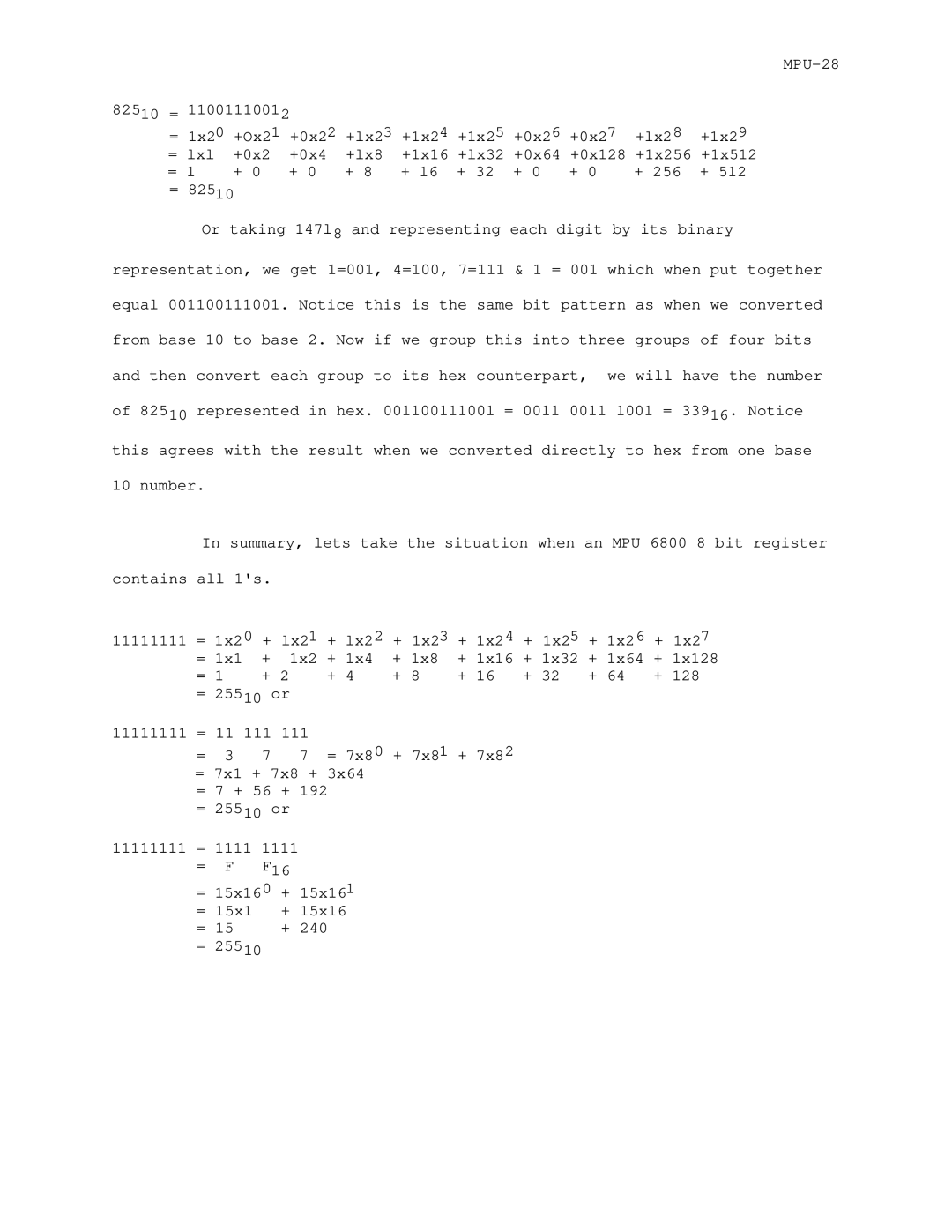82510 = 11001110012 |
|
|
|
|
|
| ||
= 1x20 +Ox21 +0x22 +lx23 | +1x24 | +1x25 +0x26 | +0x27 | +lx28 | +1x29 | |||
= lxl | +0x2 | +0x4 | +lx8 | +1x16 | +lx32 +0x64 | +0x128 | +1x256 +1x512 | |
= 1 | + 0 | + 0 | + 8 | + 16 | + 32 + 0 | + 0 | + 256 | + 512 |
= 82510
Or taking 147l8 and representing each digit by its binary
representation, we get 1=001, 4=100, 7=111 & 1 = 001 which when put together
equal 001100111001. Notice this is the same bit pattern as when we converted
from base 10 to base 2. Now if we group this into three groups of four bits
and then convert each group to its hex counterpart, we will have the number
of 82510 represented in hex. 001100111001 = 0011 0011 1001 = 33916. Notice
this agrees with the result when we converted directly to hex from one base
10 number.
In summary, lets take the situation when an MPU 6800 8 bit register
contains all 1's.
11111111 | = | 1x20 + lx21 + lx22 | + 1x23 | + 1x24 | + 1x25 | + | 1x26 + 1x27 | ||||
| = | 1x1 | + | 1x2 + 1x4 | + 1x8 + 1x16 + 1x32 | + | 1x64 + | 1x128 | |||
| = | 1 | + 2 | + 4 | + 8 | + 16 | + 32 | + | 64 + | 128 | |
| = | 25510 or |
|
|
|
|
|
|
| ||
11111111 | = 11 111 111 | = 7x80 | + 7x81 | + 7x82 |
|
|
|
| |||
| = | 3 | 7 | 7 |
|
|
|
| |||
=7x1 + 7x8 + 3x64
=7 + 56 + 192
=25510 or
11111111 = 1111 1111
=F F16
=15x160 + 15x161
=15x1 + 15x16
= | 15 | + 240 |
= | 25510 |
|
